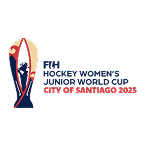
Janne Müller-Wieland is the German women’s hockey team captain and one of the country’s most highly capped players. She is a veteran of three Olympic Games, three World Cups and led her team to Indoor World Cup gold in February this year. Despite her vast experience within the game, on both a national and domestic level, the new FIH Pro League is something of a ground-breaker for the 32-year-old.
“I am intrigued by the FIH Pro League and I´m looking forward to playing it next year, as it could take hockey to a different level,” says Müller-Wieland.
Germany will hit the ground running with an opening set of fixtures against southern hemisphere opponents Australia, New Zealand and Argentina in February. This is usually the time that the German squad gets together after a break and starts to prepare for the season ahead. As Müller-Weiland says, there will need to be some quite dramatic adaptations made to the team’s approach to international fixtures.
“It will be difficult for us to go on a trip early in the year and have a Pro League game right away. Normally that is the time of year we get together for big training camps with some friendlies and development work. Now we will have to play a very important game pretty quickly. It will be interesting to see how we adapt and it will do us good to get used to more important games throughout the year, not just in the big tournaments in the summer.”
There are also the complications that many players will face when it comes to juggling other commitments. German players, like a lot of other elite athletes, often have other professions or are studying for careers in areas such as medicine, law or accounting.
“I am intrigued by the FIH Pro League and I´m looking forward to playing it next year, as it could take hockey to a different level!”
Janne Müller-Wieland, Germany
“For us German players, we all study or work besides playing hockey, so it will become even more complicated to juggle our dual careers and perform at our best for our clubs and for our countries as well as for our professors at university or our employers.”
Despite the added attention that Die Danas will need to pay to their diaries and schedules, Müller-Wieland is highly positive about the impact the FIH Pro League will have upon the sport, and Germany’s performance in particular: “Traditionally, we never have enough time with the national team, but due to the Pro League we will spend much more time together as a team, which is a benefit for us. Also it is easier to expose younger players to the pressure of international competition.
“Ideally the Pro League will evolve the way it is planned and will bring great events and big crowds and with it more money which would enable us – both internationally and on a domestic level – to become more professional.
“And obviously, the home games against top nations are a big chance to raise hockey awareness in Germany. How many people we attract to the games very much depends on the time of the year, the location – because Germany is a big country – and the opponent. I’m sure the locations chosen for our home games are smart choices though and we will host some great events.”
The FIH Pro League gets underway on 19 January 2019 when Spain men play host to Belgium. Germany women take on Australia on 10 February, part of a double header with Australia and Germany men’s teams. For all information regarding the FIH Pro League, including a full fixture list, click here.
#FIHProLeague



























